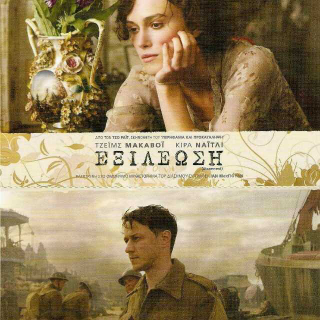
介绍:
The simplest way to have impressed Leon would have been to write him a story and put it in his hands herself,
and watch as he read it. The title lettering, the illustrated cover, the pages bound—in
that word alone she felt the attraction of the neat, limited and controllable form she had
left behind when she decided to write a play. A story was direct and simple, allowing
nothing to come between herself and her reader—no intermediaries with their private
ambitions or incompetence, no pressures of time, no limits on resources. In a story you only
had to wish, you only had to write it down and you could have the world; in a play you had
to make do with what was available: no horses, no village streets, no seaside. No curtain.
It seemed so obvious now that it was too late: a story was a form of telepathy. By means of
inking symbols onto a page, she was able to send thoughts and feelings from her mind to her
reader’s. It was a magical process, so commonplace that no one stopped to wonder at it.
Reading a sentence and understanding it were the same thing; as with the crooking of a
finger, nothing lay between them. There was no gap during which the symbols were unraveled.
You saw the word castle, and it was there, seen from some distance, with woods in high
summer spread before it, the air bluish and soft with smoke rising from the blacksmith’s
forge, and a cobbled road twisting away into the green shade . . .
She had arrived at one of the nursery’s wide-open windows and must have seen what lay
before her some seconds before she registered it. It was a scene that could easily have
accommodated, in the distance at least, a medieval castle. Some miles beyond the Tallises’
land rose the Surrey Hills and their motionless crowds of thick crested oaks, their greens
softened by a milky heat haze. Then, nearer, the estate’s open parkland, which today had a
dry and savage look, roasting like a savanna, where isolated trees threw harsh stumpy
shadows and the long grass was already stalked by the leonine yellow of high summer. Closer,
within the boundaries of the balustrade, were the rose gardens and, nearer still, the Triton
fountain, and standing by the basin’s retaining wall was her sister, and right before her
was Robbie Turner. There was something rather formal about the way he stood, feet apart,
head held back. A proposal of marriage. Briony would not have been surprised. She herself
had written a tale in which a humble woodcutter saved a princess from drowning and ended by
marrying her. What was presented here fitted well. Robbie Turner, only son of a humble
cleaning lady and of no known father, Robbie who had been subsidized by Briony’s father
through school and university, had wanted to be a landscape gardener, and now wanted to take
up medicine, had the boldness of ambition to ask for Cecilia’s hand. It made perfect sense.
Such leaps across boundaries were the stuff of daily romance.
What was less comprehensible, however, was how Robbie imperiously raised his hand now, as
though issuing a command which Cecilia dared not disobey. It was extraordinary that she was
unable to resist him. At his insistence she was removing her clothes, and at such speed. She
was out of her blouse, now she had let her skirt drop to the ground and was stepping out of
it, while he looked on impatiently, hands on hips. What strange power did he have over her?
Blackmail? Threats? Briony raised two hands to her face and stepped back a little way from
the window. She should shut her eyes, she thought, and spare herself the sight of her sister
’s shame. But that was impossible, because there were further surprises. Cecilia,
mercifully still in her underwear, was climbing into the pond, was standing waist deep in
the water, was pinching her nose—and then she was gone. There was only Robbie, and the
clothes on the gravel, and beyond, the silent park and the distant, blue hills.
The sequence was illogical—the drowning scene, followed by a rescue, should have preceded
the marriage proposal. Such was Briony’s last thought before she accepted that she did not
understand, and that she must simply watch. Unseen, from two stories up, with the benefit of
unambiguous sunlight, she had privileged access across the years to adult behavior, to rites
and conventions she knew nothing about, as yet. Clearly, these were the kinds of things that
happened. Even as her sister’s head broke the surface—thank God!—Briony had her first,
weak intimation that for her now it could no longer be fairy-tale castles and princesses,
but the strangeness of the here and now, of what passed between people, the ordinary people
that she knew, and what power one could have over the other, and how easy it was to get
everything wrong, completely wrong.
大家还在听

